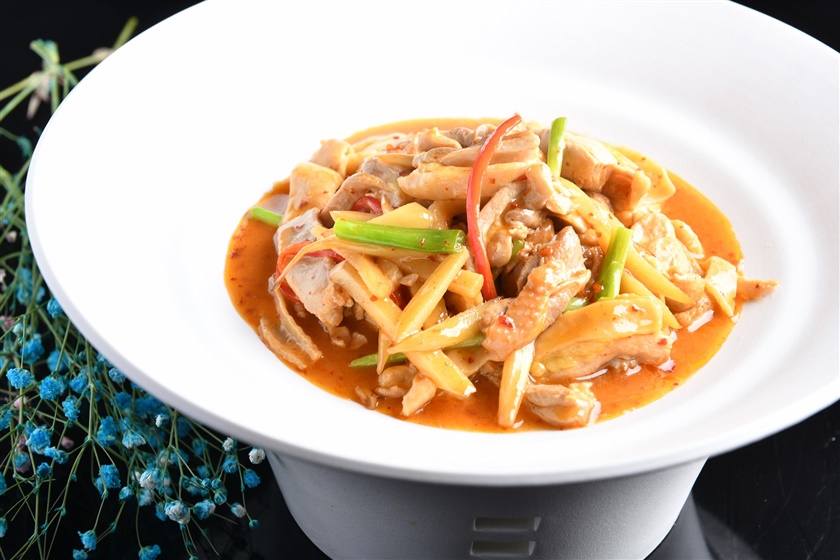
典故:東安雞,產(chǎn)于湖南省東安縣。用東安雞烹制的菜肴,因加入了米醋,故稱“醋雞”。傳說(shuō),北伐戰(zhàn)爭(zhēng)勝利后,國(guó)民革命軍第八軍軍長(zhǎng)唐生智在南京曲園酒樓設(shè)宴款待賓客,席間上了醋雞一菜,賓客嘗后贊不絕口,問(wèn)其菜名,唐生智覺(jué)得原名不雅,靈機(jī)一動(dòng)回答道:“這是家鄉(xiāng)東安雞。”從此,“東安雞”名氣日盛,成為湖南名菜,令人聞之生津,常食不厭,流傳于國(guó)內(nèi)外。
1972年美國(guó)總統(tǒng)尼克松訪華,毛澤東主席用“東安雞”招待了總統(tǒng)一行。尼克松回國(guó)后,曾多次與人談及中國(guó)名菜“東安雞”。
特點(diǎn):脆嫩鮮香、酸辣可口
Dong’an Chicken originates in Dong’an County, Hunan Province. It is also called “Fried Chicken in Vinegar” , because rice vinegar is added during its cooking. Legend has it that after the victory of the Northern Expedition, Tang Shengzhi, commander of the eighth Army of the National Revolutionary Army, hosted a banquet for guests at the Nanjing Quyuan Restaurant. During the dinner, fried chicken in vinegar was served. After tasting it, the guests praised it and asked for the name of the dish. Tang Shengzhi thought its original name was not decent, so he came up with “Dong’an Chicken”. Since then, Dong’an chicken became a famous Hunan dish and spread overseas.
American President Nixon visited China in 1972 and was treated with Dong’an Chicken by Chairman Mao. After he came back to U.S., he talked about Dong’an Chicken for several times.
Characteristics: crispy and tender, sour and spicy.




